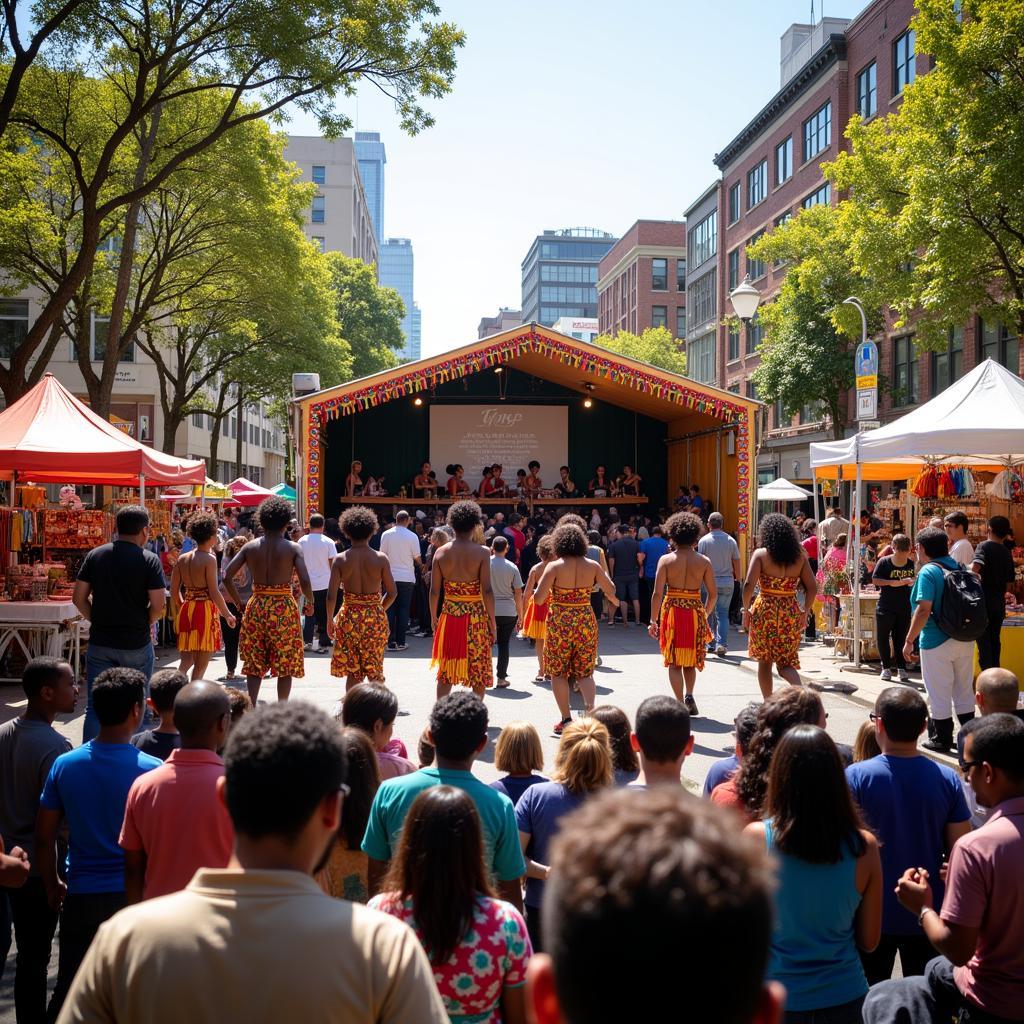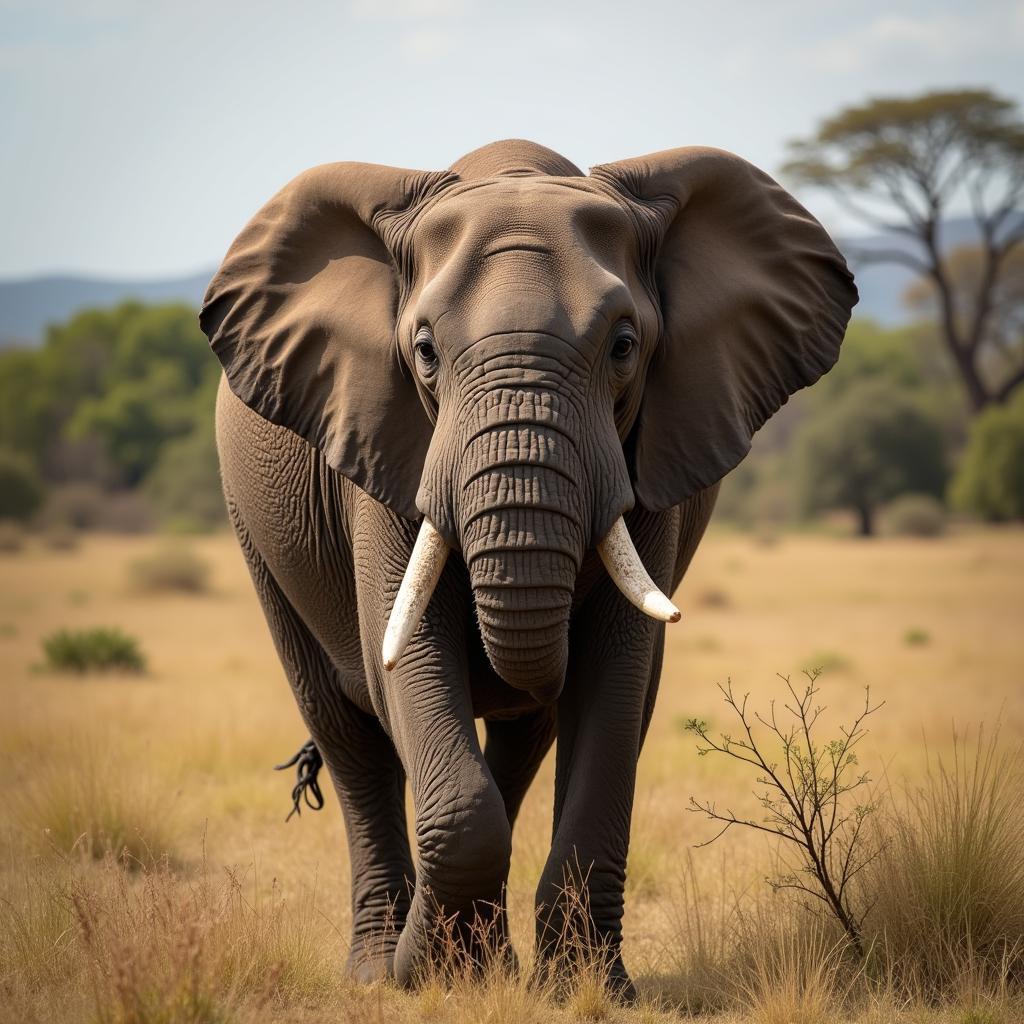Unveiling the African Sacred Ibis: Symbolism, Ecology, and Conservation
The African Sacred Ibis (Threskiornis aethiopicus) is a wading bird with striking white plumage, contrasting black wingtips and head, and a long, curved beak. This captivating creature holds a significant place in various African cultures, often revered as a symbol of wisdom, purity, and connection to the divine. Learn about this fascinating bird, its cultural importance, and the challenges it faces in the modern world.
The Sacred Ibis in Ancient Egypt and Beyond
The African sacred ibis features prominently in ancient Egyptian mythology and religion. It was considered the embodiment of Thoth, the god of wisdom, writing, magic, and the moon. Thoth was often depicted with the head of an ibis or as an ibis-mummified human. This association elevated the ibis to a sacred status, resulting in millions of mummified birds found in catacombs across Egypt. These mummified ibises testify to the deep reverence held for this creature. Beyond Egypt, the African sacred ibis is also important in other African cultures. In some regions, they are seen as messengers between the gods and humans, while in others they are viewed as symbols of the cycle of life and death. The reverence for this bird demonstrates its importance in the spiritual tapestry of the continent. You can explore more about African birds on this interesting website about the African ibis.
The ibis’s elegant form and distinctive features are not its only remarkable qualities. Its ecological role is just as crucial.
Ecological Role of the African Sacred Ibis: A Wetland Guardian
African sacred ibises thrive in a variety of wetland habitats, from marshes and swamps to riverbanks and flooded grasslands. Their long, curved beaks are perfectly adapted for probing mud and shallow water in search of their prey. They feed on a diverse diet, including insects, crustaceans, mollusks, frogs, small reptiles, and even carrion. This adaptability makes them essential players in maintaining the balance of wetland ecosystems. They help control populations of insects and other invertebrates, preventing outbreaks and maintaining the health of these delicate environments.
The African sacred ibis has spread beyond its native range, often with unexpected consequences.
The African Sacred Ibis: From Sacred Symbol to Invasive Species?
While revered in some regions, the African sacred ibis is considered an invasive species in others, particularly in Europe. Escaping from zoos and private collections, these birds established breeding populations in countries like France, Spain, and Italy. Their success as an invasive species is attributed to their adaptable diet and ability to thrive in various environments. However, their presence has raised concerns about potential impacts on native biodiversity and ecosystems. This contrasting perception of the same species highlights the complex relationship between humans and wildlife. Want to know more about other fascinating African flora? Check out this informative piece on the African berry botanical name.
Conservation Status and Threats Facing the African Sacred Ibis
The International Union for Conservation of Nature (IUCN) currently lists the African sacred ibis as a species of Least Concern. However, this does not mean they are without challenges. Habitat loss and degradation due to wetland drainage and conversion for agriculture pose significant threats. Pollution from agricultural runoff and industrial waste further compromises their environment. In some areas, hunting and persecution due to their perceived impact on agriculture and aquaculture also pose a threat. Understanding these challenges is crucial for implementing effective conservation strategies.
What does the future hold for the African Sacred Ibis?
The Future of the African Sacred Ibis: Protecting a Cultural and Ecological Treasure
Protecting the African sacred ibis requires a multi-faceted approach. Conservation efforts must focus on preserving and restoring wetland habitats, mitigating pollution, and managing human-wildlife conflicts. Educating communities about the ecological importance of these birds and promoting sustainable practices is also essential. By understanding and addressing these challenges, we can ensure the survival of this fascinating species for generations to come. Learn more about African traditions by exploring the significance of African candles.
Dr. Aminata Sow, a renowned ornithologist specializing in African birdlife, emphasizes the importance of community involvement: “Conservation efforts are most effective when they involve the local communities who share their environment with these birds. Their knowledge and participation are invaluable in achieving long-term success.”
Conclusion
The African sacred ibis, a bird steeped in history and symbolism, faces both reverence and challenges in the modern world. Understanding its ecological importance, cultural significance, and the threats it faces is crucial for ensuring its continued survival. By working together, we can protect this remarkable species and the fragile ecosystems it calls home. Do you know about traditional African containers? Discover the beauty of the African ibis vessel.
FAQ
-
What does the African sacred ibis eat?
African sacred ibises are opportunistic feeders, consuming a variety of insects, crustaceans, mollusks, small reptiles, and even carrion. -
Why is the African sacred ibis considered sacred in ancient Egypt?
It was considered the embodiment of Thoth, the god of wisdom, writing, and magic. -
Is the African sacred ibis endangered?
Currently, it is listed as a species of Least Concern, but it faces various threats, including habitat loss and pollution. -
Where can African sacred ibises be found?
They are native to sub-Saharan Africa and Madagascar but have also become established as an invasive species in some parts of Europe. -
What are the main threats to African sacred ibis populations?
Habitat loss, pollution, and human persecution are the primary threats.
Dr. Kwame Asante, a leading expert in African cultural ecology, adds, “The African sacred ibis represents a powerful connection between nature and culture. Preserving this species means safeguarding a vital part of Africa’s heritage.”
Other questions that are often asked
- What is the average lifespan of an African Sacred Ibis?
- How do African Sacred Ibises communicate?
- What is the breeding behavior of African Sacred Ibises?
- What role do African Sacred Ibises play in the food chain?
Suggestions for further reading
- Explore the latest research on African Sacred Ibis conservation efforts.
- Learn more about the cultural significance of birds in different African societies.
- Discover the diversity of wetland ecosystems in Africa and the importance of their conservation.
- Consider reading about other similar species within the Threskiornithidae family. You might want to discover the African Frag at african frag.
For assistance or inquiries, please contact us at:
Phone: +255768904061
Email: kaka.mag@gmail.com
Address: Mbarali DC Mawindi, Kangaga, Tanzania.
Our customer support team is available 24/7.



